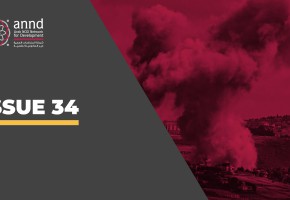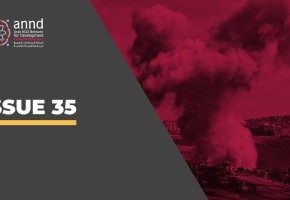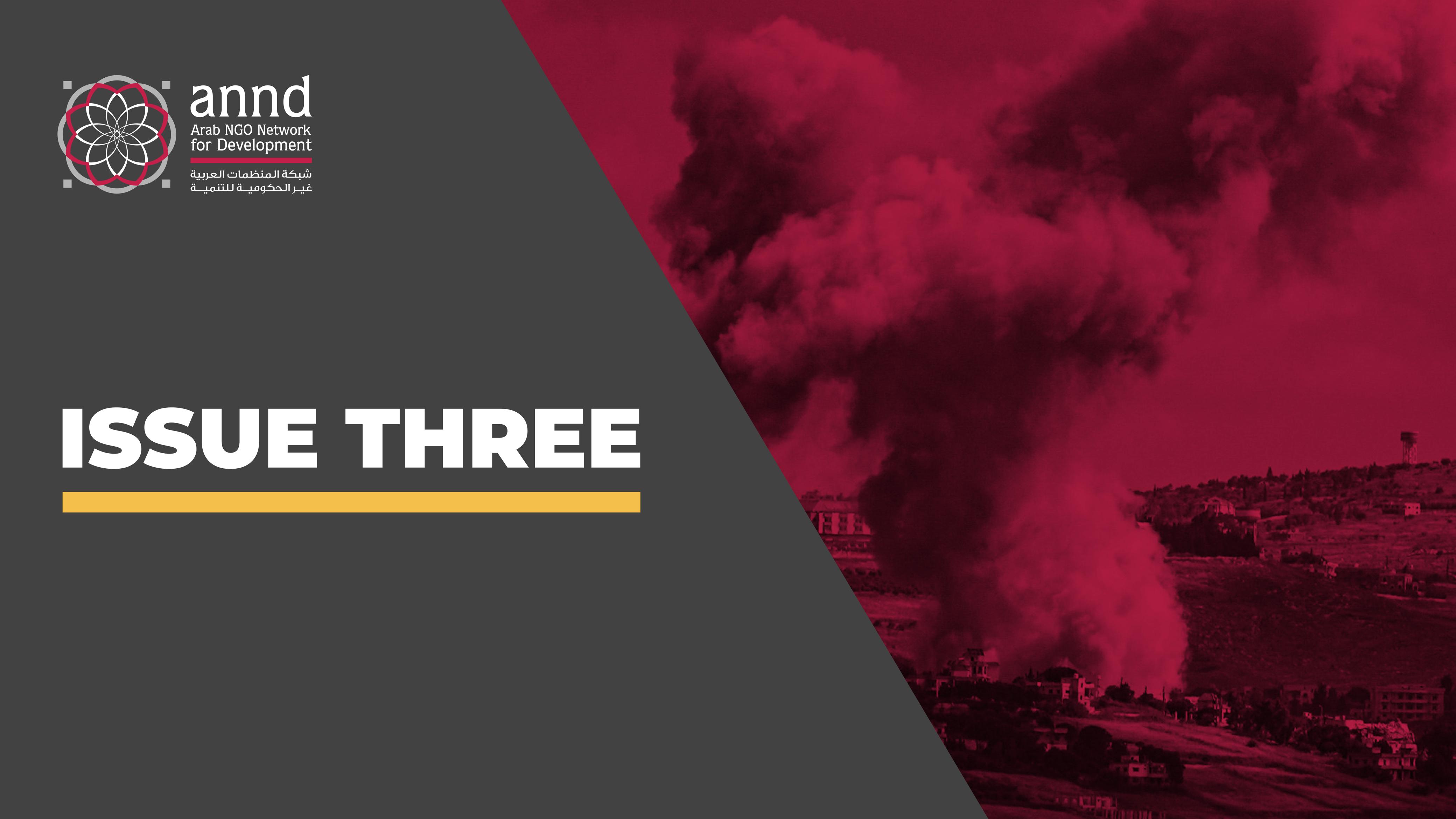
A Region on Fire
Issue Three- September 29, 2024
Another Brutal Day in Lebanon and Gaza
After three brutal and bloody days marked by a relentless escalation of Israeli air strikes, Lebanon bears witness to an unprecedented toll of martyrs and civilian casualties—all in a single day—coupled with the displacement of more than a million people. Israeli warplanes bombed the southern suburbs of Beirut, the Bekaa, and the South, all under the shadow of increasing international warnings and foreboding concerns of a full-scale war following the assassination of Hezbollah’s Secretary-General. On the 359th day of the war on the besieged Gaza Strip, the Israeli army left more victims amid continued airstrikes.
The Israeli government conducts itself as if it holds a "license to kill," completely evading any accountability for its violations of international law. It seeks to normalize daily killings as an integral, accepted, and organic component of its policies and practices.
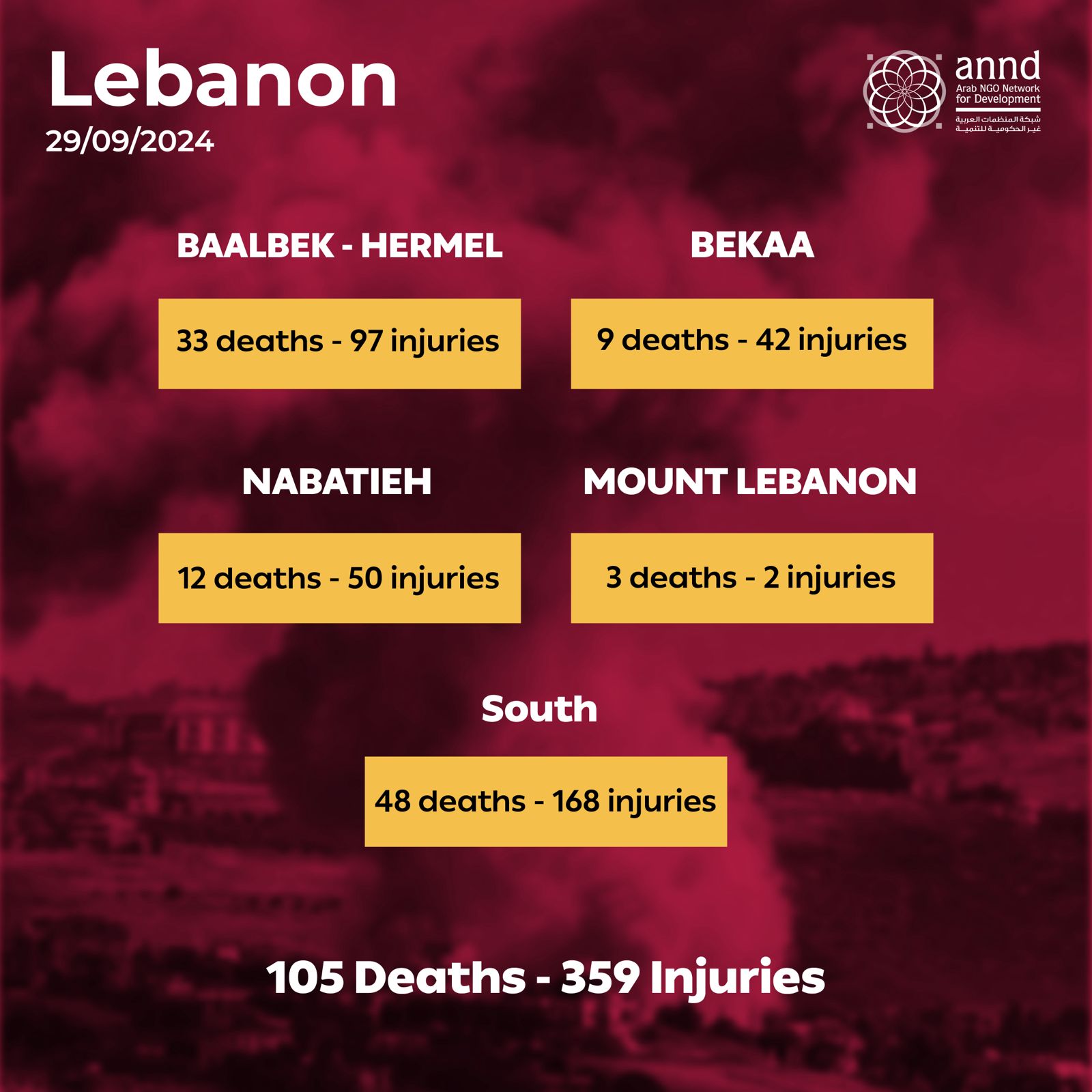
Lebanon
The Lebanese Prime Minister announced the allocation of 778 shelters, which currently host 118,000 people. However, it is well-understood that the number of displaced persons is much higher, potentially reaching one million. According to the Prime Minister, these individuals who had fled from southern and eastern parts of Lebanon, as well as the southern suburbs of Beirut, could constitute the largest displacement in the country, occurring in a very short period of no more than a few days.
According to updates from the Ministry of Health, the death toll on Sunday, September 29, reached 105, with 359 injured, bringing the total number of martyrs to 1,745, including 41 paramedics. The total number of injured has reached 8,767, and the number of airstrikes has since totaled 7,451.
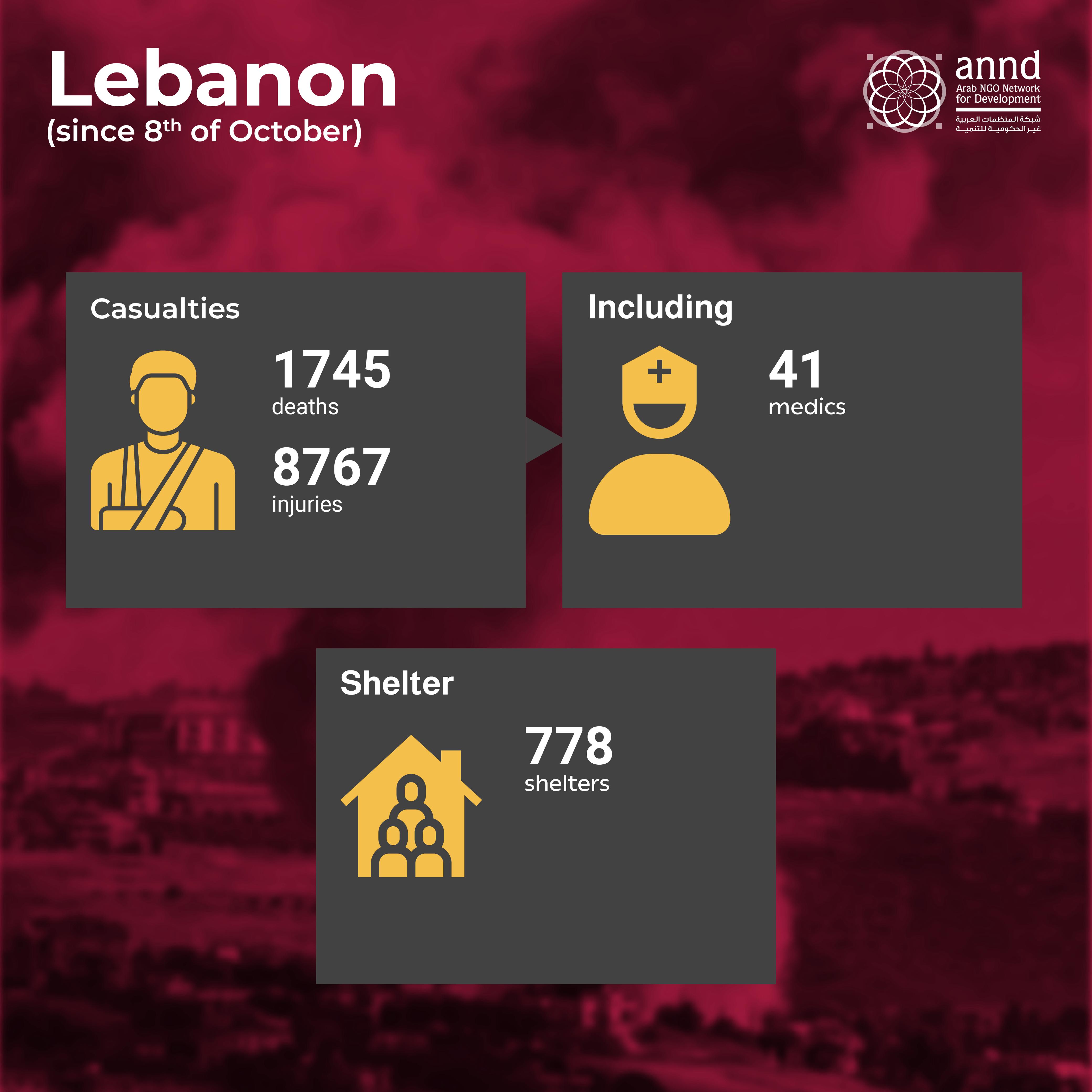
Lebanon’s Internal Politics
The Lebanese Prime Minister called for the immediate implementation of the United Nations Security Council Resolution (UNSCR) 1701. Political activists and members of parliament also called on the Lebanese government to take responsibility and initiate steps to protect Lebanon and its citizens, minimize losses, and address the current political vacuum to put a stop to the bloody war being waged on the country. They called for coordination with the Lebanese Parliament and its Speaker to declare a state of political, security, and humanitarian emergency.
The Lebanese Army Command, however, issued a call to the Lebanese people to safeguard national unity and avoid cascading into actions that could compromise civil peace during this critical and dangerous phase, urging citizens to cooperate with these measures.
The Maronite Patriarch made a notable statement regarding the assassination of Hezbollah Secretary General Hassan Nasrallah, pointing out that this assassination had deeply wounded the hearts of the Lebanese people. He emphasized that this martyrdom had been chosen by believers from different Lebanese communities for the sake of their beloved homeland, despite their differing views on its governance. The Patriarch called on the international community to act to achieve a just peace that guarantees the rights of the region's people. He noted that the Lebanese cannot rely on anyone but themselves, stressing that Lebanon can only fulfill its mission through neutrality, as war "is a loss for everyone." He stressed the need for diplomacy to be used as a means to avoid further losses.
At the International Level
No notable change in the U.S. position: calls to avoid igniting a regional war, while refraining from exerting any pressure to curb the Israeli government's belligerent and violent posture, which is pushing the region to the brink of a full-scale regional conflict. The U.S. President stressed the need to avoid a full-scale war, while the U.S. National Security Council spokesperson reaffirmed that U.S. support for Lebanon remains steadfast and unchanged. He also expressed hope that Iran would not escalate the situation, but if it did, the U.S. had the capability to defend itself and Israel.
The French Foreign Minister arrived in Beirut on Sunday evening to broach the situation with local authorities and provide French support in the form of humanitarian aid, bringing with him a donation of emergency medical supplies to Lebanon.
The European Commission announced an additional 10 million-Euro injection of urgent humanitarian aid to assist those affected by the ongoing escalation in Lebanon, stating that the emergency funding aimed to address the most pressing needs such as food protection, shelter, and healthcare.
Reiteration of the Israeli Positions and Repercussions in Gaza and Yemen
Netanyahu reiterated his objectives: to eliminate Hamas, bring back the hostages, and return the population to the north, amid recurring talk of Israel's preparation for a ground offensive, which will pave the way for negotiations to remove Hezbollah fighters from the borders under a written agreement.
According to news reports, Israel has requested Washington to send additional forces to the region in preparation for a potential Iranian response, while the opposition lawmaker Gideon Sa'ar is expected to join the government in a move likely to strengthen the Prime Minister politically.
In parallel, the Israeli Energy Minister asserted that the maritime border agreement with Lebanon was a mistake that should be corrected, as he seeks to find a way or loophole to void the maritime border demarcation with Lebanon. It is worth remembering that this maritime border agreement between Lebanon and Israel was reached in October 2022, after two years of indirect negotiations mediated by the U.S. to demarcate part of the Mediterranean which is rich in oil and natural gas. Lebanese civilian and military experts confirm that the agreement was lopsided and unfair to Lebanon, depriving it of a maritime area that includes part of the Karish field, which Israel currently exploits alone and unabated.
In another escalation, Israeli airstrikes targeted several areas in Yemen's Hodeidah on Sunday evening, which is controlled by the Houthi group. The airstrikes targeted oil tanks in the Ras 'Isa Port, while other strikes hit Hodeidah Port on the Red Sea in Yemen’s West. According to Houthi-affiliated medical sources, these Israeli airstrikes resulted in the deaths of 4 people and the injury of 29 others in the initial tallying.
Recent publications


